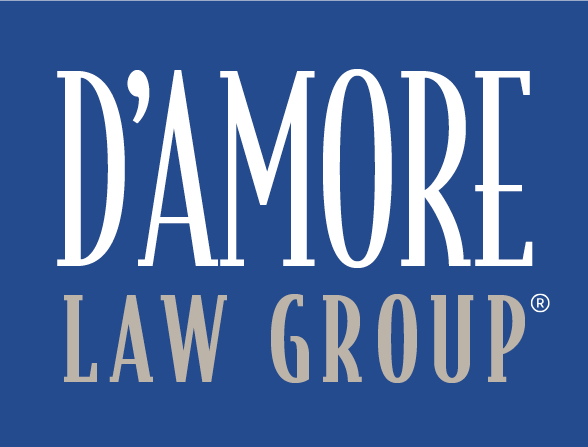Sexual harassment is unacceptable in any setting, whether at work, in public, or elsewhere. Understanding the different types of sexual harassment can help you recognize when it occurs and...
Read more
What Are Employers’ Obligations with Regard to Sexual Harassment?
All workers deserve respectful treatment and protection from harassment, discrimination, and abuse, regardless of their job or seniority.
Sadly, however, sexual harassment in the workplace is common. Sexual harassment can take many forms; and, while employers have a duty to provide a safe workplace, many fall far short of meeting their legal obligations.
Contact us today at 503-222-6333 to discuss your case and learn how we can help you.
What Are Employers’ Obligations in Oregon and Washington?
The obligation for employers to provide a safe workplace free of sexual harassment exists under both state and federal law. At the federal level, this obligation is based on Title VII of the Civil Rights Act of 1964 (often simply referred to as “Title VII”). Title VII prohibits sex-based discrimination (among various other forms of discrimination), and sexual harassment is considered a form of prohibited sex-based discrimination under Title VII.
In Oregon, employers are “required by law to have a clear policy to reduce and prevent harassment, discrimination, and sexual assault.” This requirement comes from the Oregon Workplace Fairness Act. In Washington, “[a]ll forms of sexual harassment are illegal, and employers may be liable for this behavior if they do not take the proper steps to address it.”
What are employers required to do in order to prevent sexual harassment in the workplace? Employers’ specific responsibilities will vary depending on the size of the company and the various specific risks and concerns that are present in the workplace. Generally speaking, however, under Title VII and the employment laws of Oregon and Washington, employers must:
- Adopt and enforce written policies that prohibit sexual harassment;
- Adopt and enforce written procedures that are designed to prevent sexual harassment;
- Provide appropriate training that includes an explanation of what constitutes sexual harassment;
- Establish procedures and channels for employees to report instances of sexual harassment;
- Promptly investigate all credible allegations of sexual harassment; and,
- Take appropriate remedial action in response to instances of sexual harassment.
If an employer fails to undertake any of the steps that are required by law, the risk of sexual harassment occurring (and being ignored) in the workplace can increase significantly – that is why these requirements exist. Employers must take their obligations seriously; and, if they fail to do so, they can face consequences in both civil litigation and administrative enforcement proceedings.
Can You Sue Your Employer If You Are Sexually Harassed at Work?
As an employee, what are your legal rights if you experience sexual harassment in the workplace? First and foremost, you can (and should) report the incident to your employer, and you should also promptly file a written report detailing the incident.
If you are a victim of workplace sexual harassment, you also can (and should) file a liability claim against your employer. As a general rule, employers are “vicariously liable” for the acts of their employees under Oregon and Washington law. The law of vicarious liability holds employers legally responsible for their employees’ acts undertaken within the scope of their employment, and this can include all forms of sexual harassment, depending upon the circumstances involved.
In addition, as the Oregon Bureau of Labor & Industries (BOLI) explains:
“An employer is automatically liable for sexual harassment by a supervisor when a ‘tangible employment action’ occurs in connection with the harassment. A tangible employment action is very broadly defined and doesn’t have to be negative. Examples include changes in work assignment or schedule, terminations, or failure to promote you.”
Even if no tangible employment action is taken, an employer can still be held liable for sexual harassment in Oregon if the employer either knew about the harassment or should have known about the harassment and failed to take appropriate responsive action. In other words, there does not necessarily have to be evidence of a quid pro quo in order to establish employer liability. Whether the law of vicarious liability applies or an employer is liable for its own direct negligence (i.e., failing to adequately screen, train, or supervise its employees), all victims of workplace sexual harassment deserve justice, and all employers deserve to be held legally accountable.
In Washington, the law is similar (and, of course, Title VII applies regardless of where you live). Additionally, as summarized by the Washington State Office of the Attorney General:
“Employers may be liable for sexual harassment if they do not adopt and enforce policies to: [p]rovide procedures for employees who have experienced sexual harassment to report complaints; [t]horoughly and promptly investigate complaints of sexual harassment; and [t]ake prompt and effective action to eliminate further sexual harassment in the workplace.”
What Constitutes “Appropriate” Action in Response to a Complaint of Sexual Harassment in the Workplace?
In many cases, employers can avoid or mitigate their liability by taking appropriate action in response to an employee’s complaint of sexual harassment. This begs the question: What is “appropriate” when an employee is victimized on the job?
As with many other aspects of the law, the answer is, “It depends.” In some cases, it may be enough to conduct an investigation (if the investigation legitimately does not uncover any evidence of misconduct or abuse). In others, it may be necessary to not only terminate the employee who perpetrated the harassment but to provide department-wide or company-wide training as well.
Ultimately, as an employee who has experienced sexual harassment in the workplace, the most important thing you need to know is that the law protects you and help is available. You deserve to have your voice heard, and you deserve to be fully and fairly compensated for the mistreatment you have endured.
Speak with a Trusted Harassment Law Firm in Oregon or Washington
If you have experienced sexual harassment in the workplace, we strongly encourage you to speak with one of our attorneys about your legal rights. To schedule a free and confidential consultation at D’Amore Law Group, call us at (503) 974-3562 or tell us how we can reach you online today.
